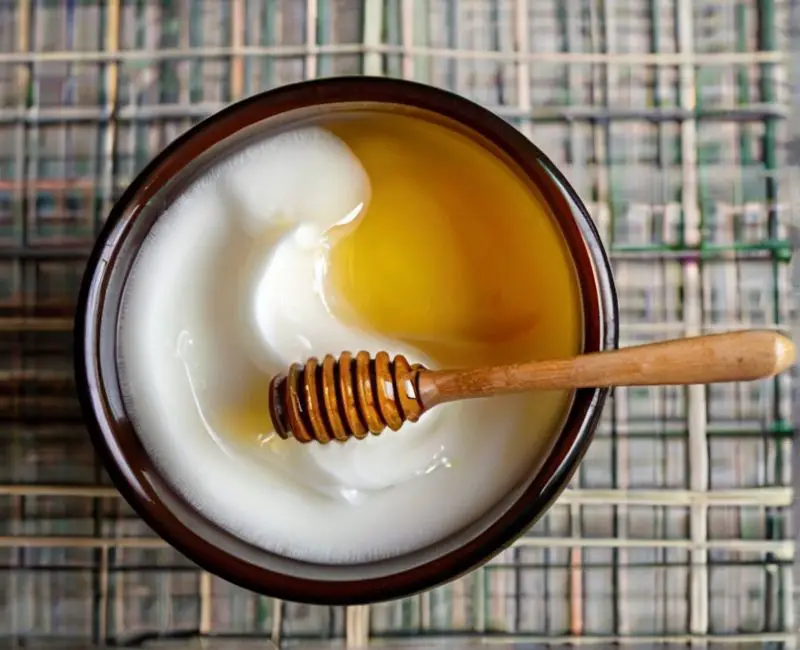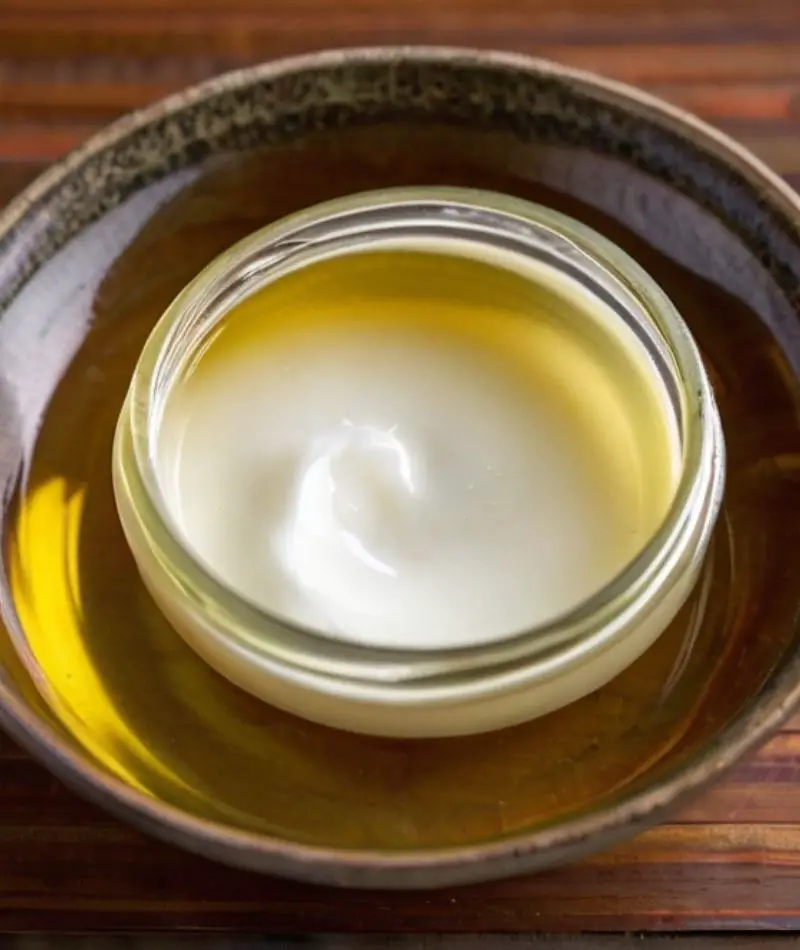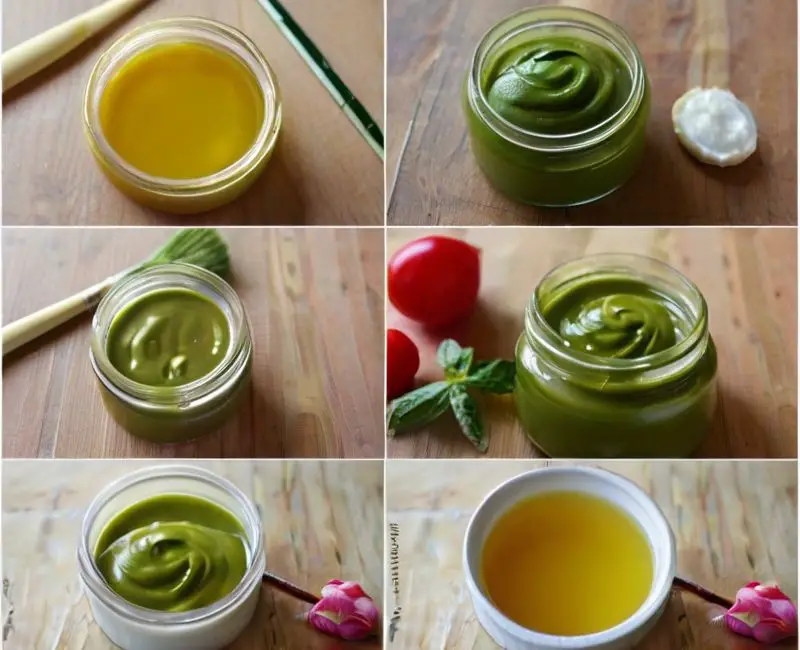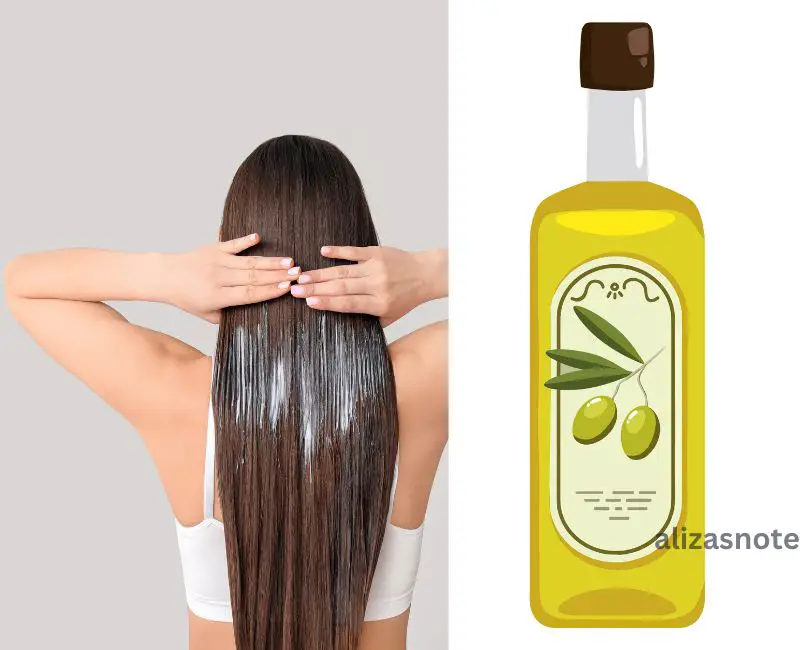How To Make Homemade Cholesterol For Hair

Cholesterol hair conditioning, as it’s also known, the power of cholesterol, a natural lipid found in animal cell membranes. When applied to the hair, cholesterol replenishes moisture, strengthens strands, and enhances elasticity, resulting in silkier, more manageable hair.
Perhaps you’re questioning how to make homemade cholesterol for hair. While convenient, homemade treatments offer the flexibility to tailor ingredients to your hair’s specific needs.
Moreover, homemade concoctions often omit harsh chemicals and preservatives, making them a gentler choice for both your hair and the environment.
Join us, we’ll explore the myriad benefits of integrating cholesterol treatments into your regular hair care regimen and address common queries and considerations.
What Is Cholesterol Hair Treatments:
Cholesterol hair treatments have surged in popularity lately, but what exactly are they?
At its essence, a cholesterol hair treatment is a deeply nourishing conditioning regimen engineered to fortify and invigorate hair from its roots to its ends.
These treatments typically meet the power of cholesterol, a natural lipid found in animal cell membranes, alongside a blend of other hydrating and conditioning agents. When applied, cholesterol diligently replenishes lost moisture, enhances elasticity, and bolsters overall hair health.
One of the standout advantages of cholesterol hair treatments is their unparalleled ability to rescue parched, weathered hair. The onslaught of heat styling, chemical treatments, and environmental stressors can strip hair of its natural oils, leaving it parched, brittle, and prone to snapping. Enter cholesterol treatments—they swoop in to restore moisture, rendering hair softer, smoother, and infinitely more manageable.
Moreover, cholesterol treatments don’t just stop at hydration; they also reinforce hair fibers and enhance elasticity. Regular indulgence in cholesterol treatments can even serve as a protective shield, warding off future damage and making it an indispensable asset in your hair care arsenal.
Wondering about the ingredients that make up these potent treatments? While formulations may vary, cholesterol stands at the forefront as the primary moisture-restoring agent. Accompanying it are emollients like oils and butters, working harmoniously to lock in moisture and refine hair texture. Some treatments may also incorporate proteins, vitamins, and botanical extracts to further nourish and fortify strands.
Now, let’s discuss how to maximize the efficacy of cholesterol hair treatments. Typically, these treatments are applied to clean, damp hair, left to work their magic for a specified duration, and then rinsed out. The application time may vary depending on the product and your hair’s specific needs, so adhering to the instructions is key for optimal outcomes.
For an added hydration boost, consider employing cholesterol treatments as leave-in conditioners or overnight treatments. Simply apply a small amount to damp or dry hair, paying extra attention to the ends, and allow it to work its wonders overnight. Come morning, rinse away any residual product and revel in your newly revitalized locks.
In essence, cholesterol hair treatments present a versatile and potent solution for nourishing, fortifying, and rejuvenating your hair.
Choosing Ingredients:
Choosing the appropriate ingredients is crucial when crafting homemade hair cholesterol treatments. Below is a perfect guide to aid you:
1. Cholesterol
At the forefront of these treatments, cholesterol stands as the primary agent for replenishing moisture, strengthening hair fibers, and enhancing elasticity. Opt for pure cholesterol or seek out cholesterol-rich alternatives like egg yolk or lanolin.
2. Emollients
Emollients, such as natural oils and butters, serve to lock in moisture, soften hair, and refine its texture. Popular options encompass coconut oil, shea butter, olive oil, and avocado oil.
3. Proteins
Ingredients rich in proteins contribute to hair repair and fortification against damage. Consider integrating components like egg whites, yogurt, or hydrolyzed silk protein for their restorative properties.
4. Vitamins and Minerals
Essential for maintaining hair health, vitamins and minerals play a pivotal role. Look for ingredients abundant in vitamins A, E, and B-complex, along with minerals like zinc, iron, and magnesium. Honey, aloe vera, and banana are excellent sources.
5. Botanical Extracts
Offering an array of benefits including hydration, scalp stimulation, and antioxidant protection, botanical extracts are invaluable. Explore extracts such as rosemary, peppermint, chamomile, and green tea for their diverse advantages.
6. Essential Oils
Beyond imparting fragrance, essential oils boast therapeutic properties beneficial for hair and scalp health. Choose from lavender, rosemary, tea tree, and peppermint for their soothing, stimulating, and antimicrobial effects.
7. Humectants
Moisture-attracting agents, humectants ensure hair remains hydrated and moisturized. Common humectants like glycerin, honey, and aloe vera gel are excellent choices.
8. Acids
Balancing the scalp’s pH, acids like apple cider vinegar or lemon juice aid in removing buildup and adding shine to hair. Exercise caution with these ingredients to prevent over-drying.
Experiment with various combinations and proportions to create a personalized formula suited to your needs, you can concoct bespoke cholesterol treatments that elevate your hair’s health and appearance.
How to make homemade cholesterol for hair:
Crafting homemade cholesterol treatments for your hair is a simple yet rewarding process that allows for personalization based on your hair’s unique requirements. Here’s an easy-to-follow recipe to kickstart your homemade cholesterol treatment journey:
Ingredients
- 2 tablespoons of cholesterol conditioner (readily available at most drugstores)
- 1 tablespoon of coconut oil
- 1 tablespoon of honey
- Optional: a few drops of essential oil for a delightful fragrance (such as lavender or rosemary)
Instructions
- Combine the cholesterol conditioner, coconut oil, and honey in a small mixing bowl.
- Thoroughly blend the ingredients until they form a smooth, homogeneous mixture.
- If desired, add a few drops of your preferred essential oil to infuse the treatment with a pleasant scent.
- Use a container for storage to transfer the mixture.
Application Method
- Start by cleansing your hair with a gentle shampoo to eliminate any buildup or residues.
- Pat your hair dry with a towel until it’s slightly damp but not dripping wet.
- Generously apply the homemade cholesterol treatment to your hair, concentrating on the lengths and ends, which are typically drier.
- Massage the treatment into your hair and scalp gently to ensure even distribution.
- Once applied, cover your hair with a shower cap or plastic wrap to enhance absorption and create a barrier.
- Allow the treatment to sit for at least 30 minutes to enable the ingredients to deeply penetrate the hair shaft.
- Rinse your hair thoroughly with warm water, followed by a final rinse with cool water to seal the hair cuticles and enhance shine.
- Style your hair as usual, reveling in the nourishing effects of your homemade cholesterol treatment.
Don’t hesitate to adjust the ingredients and quantities to suit your hair’s specific needs and preferences. With consistent use, you’ll notice your hair becoming noticeably softer, smoother, and more manageable, thanks to the nourishing properties of your homemade cholesterol treatment.
Tips for Application and Usage:
When it comes to applying and utilizing homemade cholesterol treatments for your hair, employing a few essential tips can significantly enhance their efficacy. Here’s a breakdown of key pointers:
Begin with Fresh, Damp Hair
Kickstart the treatment process by cleansing your hair with a gentle shampoo to eliminate any residues or buildup. Towel-dry your hair until it’s slightly damp but not overly wet, creating an ideal canvas for the treatment to penetrate.
Target the Dry Areas
Direct your application focus primarily on the mid-lengths and ends of your hair, areas prone to dryness and damage. Avoid saturating the roots excessively, as this may weigh down your hair.
Massage Thoroughly:
Take the time to massage the cholesterol treatment into your hair and scalp meticulously. This ensures even distribution and encourages deeper penetration of the treatment into the hair shaft.
Utilize Heat for Enhanced Absorption
Consider incorporating heat to facilitate deeper penetration of the cholesterol treatment into your hair. Cover your hair with a shower cap or warm towel post-application, or opt for a hooded dryer for 15-20 minutes to amplify the treatment’s effects.
Adhere to Recommended Duration
Respect the specified duration outlined in the instructions for your chosen cholesterol treatment. Allowing the treatment to remain on your hair for the prescribed time permits the ingredients to work their magic fully.
Thorough Rinse:
After the designated period, ensure to rinse the cholesterol treatment out of your hair thoroughly with warm water. Follow up with a refreshing cool water rinse to seal the hair cuticles and impart added shine.
Hair’s Needs
Monitor how your hair responds to the cholesterol treatment and adjust the frequency accordingly. While some may benefit from weekly treatments, others may find bi-weekly or monthly application more suitable.
Products
Enhance the efficacy of your cholesterol treatment by pairing it with other hair care staples, such as leave-in conditioners or hair masks. This synergistic approach can elevate overall hair health and appearance.
Experiment with different techniques and product combinations to discover what works best for your unique hair needs, and revel in the transformative effects of your personalized hair care regimen.
Integrating Cholesterol Treatments into Hair Care Routine:
Begin by assessing your hair’s current condition and identifying specific concerns such as dryness, damage, or lack of shine. This understanding will help tailor your cholesterol treatment to address your hair’s unique requirements effectively.
Choose a cholesterol treatment that suits your hair type, concerns, and preferences. Whether opting for store-bought solutions or homemade recipes, ensure the treatment contains nourishing ingredients aligned with your hair’s needs.
Determine how frequently you’ll incorporate cholesterol treatments into your routine based on your hair’s responsiveness. Whether weekly, bi-weekly, or monthly, consistency is key to seeing results. Adjust the frequency as needed to meet your hair’s demands.
Start with freshly cleansed, slightly damp hair before applying the cholesterol treatment. Use a gentle shampoo to remove any buildup, followed by towel-drying to create an ideal canvas for absorption.
Distribute the cholesterol treatment generously throughout your hair, focusing on the ends and mid-lengths where moisture is needed most. Massage it in gently to ensure even coverage and maximum absorption.
Consider using heat to intensify the treatment’s effects. Cover your hair with a shower cap or warm towel post-application, or utilize a hooded dryer for deeper penetration into the hair shaft.
After the designated treatment period, thoroughly rinse the cholesterol treatment from your hair with warm water. Follow up with a cool water rinse to seal the cuticles and enhance shine. Style your hair as usual, reveling in its renewed vitality.
Stay committed to your chosen treatment schedule for optimal results. Consistency is vital in nourishing and revitalizing your hair, so stick to your routine and be patient as you witness the transformative effects over time.
FAQ:
Q. Can you share a homemade recipe for long hair growth?
One effective homemade recipe involves mixing equal parts coconut oil and castor oil. Apply the blend to your scalp and hair, leave it on for at least an hour, then rinse with shampoo and water. Repeat weekly for optimal results in promoting long hair growth.
Q. Does any cholesterol oil for hair benefits?
Cholesterol oil boasts nourishing properties that deeply moisturize, strengthen, and repair damaged hair. It penetrates the hair shaft to restore moisture balance, enhance elasticity, and reduce frizz. Furthermore, it aids in improving hair texture and overall hair health.
Q: How frequently should I utilize a cholesterol treatment for my hair?
The ideal frequency of cholesterol treatments varies based on your hair’s condition. For dry or damaged hair, weekly treatments may be advantageous, while those with healthier hair might opt for monthly sessions.
Q: Is it advisable to leave a cholesterol treatment on my hair overnight?
While overnight application can intensify the treatment’s effects, consider your hair type and the specific treatment being used. Some treatments may be too heavy or greasy for overnight use, potentially leading to buildup. Proceed cautiously and ensure thorough rinsing in the morning.
Q: Can cholesterol treatments be applied to colored or chemically treated hair?
Yes, cholesterol treatments are generally safe for colored or chemically treated hair. In fact, they can aid in restoring moisture and vitality to hair that has undergone such treatments. However, it’s wise to conduct a patch test and seek advice from a hairstylist if uncertainties arise.
Last Call:
- Mastering the craft of concocting homemade cholesterol treatments opens up a world of natural, wholesome ingredients that can work wonders for your hair. These treatments not only offer deep hydration and repair but also nurture healthier, more resilient strands with consistent use.
- As you venture further into your homemade hair care routine, remember that experimentation and consistency are paramount.
- Homemade cholesterol treatments aiming to stimulate growth, combat dryness, or simply indulge in self-care, homemade treatments provide a personalized solution tailored to your unique hair journey.
So, as we bid adieu to this exploration of homemade cholesterol treatments, I encourage you to continue embracing the natural allure of DIY hair care. With a touch of creativity and commitment, you’ll unlock the secret to healthier, happier hair that exudes vitality and beauty.
Call To Action:
- Your voice matters! Share your experiences, thoughts, and additional tips in the comments below. Your input can inspire and support others on their hair care journey, creating a vibrant community of DIY enthusiasts.
- For more hair care inspiration and ideas, join us on Pinterest. Let’s create beautiful, healthy hair, one homemade treatment at a time!
Find More Hair Care Solution:
Debunking Common Hair Care Myths






